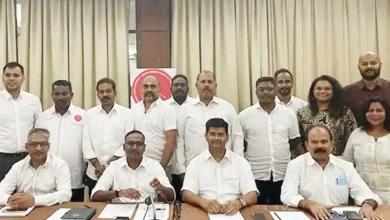What’s holding back the probe into judge Nazlan?

From Walter Sandosam
It is another “cat and mouse” game being played all over again. But the victim is neither the mouse nor the cat; they emerge unscathed. It is, unfortunately, the layman and public at large who are affected.
Matters relating to judge Nazlan Ghazali are of public interest given he was the High Court judge who heard the case of ex-prime minister Najib Razak.
The attorney-general (AG) had in August reportedly said that the Malaysian Anti-Corruption Commission investigation papers on the judge were “not with the attorney-general’s chambers (AGC)”.
This is not an untruth.
A new word has also emerged “research papers”.
On Sept 8, the MACC chief commissioner, Azam Baki, confirmed that the said investigation papers were now with MACC having been returned by the attorney-general’s department to MACC for “further action”.
As an MACC oversight panel member, who served in the first cohort of oversight panels appointed pursuant to the MACC Act 2009, I can say that in general terms this means that some information is either incomplete or certain angles have not been sufficiently investigated, or researched.
Hence, the explanation from the chief commissioner that this back and forth of investigation papers is normal. No one disputes that process.
What is unpalatable is the absence of a time frame for resolution.
It should be noted that as part of the process, a representative from the AG’s office sits with the MACC investigators to ensure that the papers being submitted to the AG are of sufficient veracity and quality in terms of comprehensiveness touching all bases.
This is to meet the expectations of the AGC. At times it falls short. No issue here as no one is perfect, not least the MACC.
The only question is: why the delay? Hopefully it is not due to the lack of diligent forensic accounting skill sets to handle such “complex” cases.
The primary reason for robustness of investigations is that if a decision is to be taken to prosecute, as far as possible all angles and facts provided therein should have been covered by MACC so that the case is as watertight as possible leading to a successful conviction.
It is in this context that it appears that the AG has suffered from a constipation of words. While it is good to be brief, a few extra words would have added much clarity e.g. “I have returned it to MACC for ‘further action’.” Why the sudden loss of extended vocabulary?
Much confusion has been sown. Does the public have to speculate and is another civil servant needed to enlighten them? If so, then the quality of officers serving in our institutions is a cause for concern.
A lot has been heard lately about MACC’s silence regarding an investigation which commenced some years ago into a company with sizeable reported debts. Is there something amiss here? Who is responsible for the lack of accountability?
Good governance with transparency is apparently sorely lacking. The public is being taken for granted in terms of dissemination of information. Perhaps a laxative would be most helpful to allow a few more words to emerge from persons in charge.
Those who had spoken the loudest in the cause of following “due judicial processes without untoward delays” now appear strangely silent on this issue. Perhaps they are hoarse from their earlier exhortations.
The speedy resolution of investigations and subsequent decisions will go a long way in quelling unwarranted speculation. Delayed investigations result in delayed justice.
Taxpayers who fund the civil service expect a higher level of accountability.
Walter Sandosam is a former member of the MACC operations review panel.
The views expressed are those of the writer and do not necessarily reflect those of FMT.




